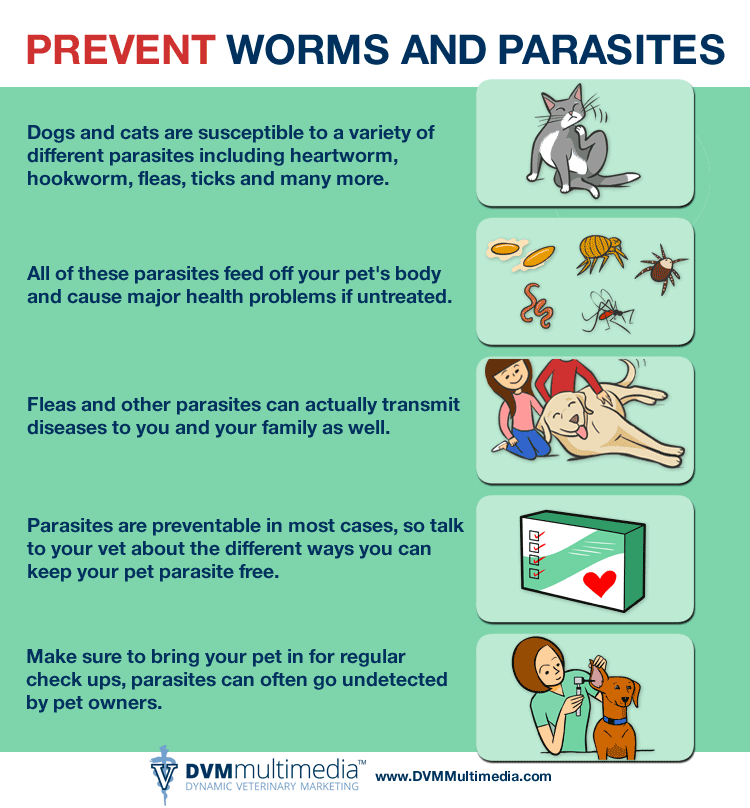Most pet owners are aware that our furry friends have some potential risk for picking up “worms”. We also see a few people (rightly or wrongly) attribute certain illnesses in their pets to parasites. In reality, the number of cases of illness in the dogs and cats that we see is rather low.
Why Make a Big Deal?

As noted, they can make your pet sick. The usual symptom that I see is GI upset, mainly vomiting and/or diarrhea. That is reason enough to make recommendations for treatment and prevention.
However, it is far from the only one. For me, the biggest reason is to prevent human illness. Most pet owners have no clue that those gross “worms” that are occasionally seen in puppy poop poses some human health risk.
Human Health Risks

These parasites rarely cause human disease by living in the intestine; like what they do in a dog or cat. The larvae can migrate through the patient’s tissues such as the skin and internal organs. These parasites can cause severe disease if they migrate through the eyes or nerve tissues.
According to the CDC, 3-4000 samples are received by them, and other labs, annually for confirmation. Children are at the greatest risk, along with sunbathers and workers who crawl under raised buildings and are likely to come into contact with animal feces.
Pet Parasite Prevention

Fortunately, the threat is dealt with relatively easily. First, practice good hygiene when playing outside. Keep yards clean and free of accumulating animal feces, and importantly, keeping your furry friends dewormed on a regular basis.
Due to the life cycles of the parasites, puppies and kittens are the most at risk for shedding a lot of parasite eggs. It is very important to have that new pup or kitty dewormed multiple times in the first few months of life.
How Often To Treat Intestinal Parasites
The parasites progress through the life cycle, deworming should be done multiple times. Often we will hear folks object to having their young animals dewormed with the excuse that “they are never around other animals”.
In the young pet, this does not matter, since the worms are acquired from their mothers. Control in older animals is easily obtained either by using heartworm preventative in the recommended manner, (This is what should be done for all dogs, as we do have heartworms here) or a periodic deworming of adults.
Annually is felt to be sufficient here for older dogs, depending on risk and lifestyle. For indoor cats, an annual deworming satisfies this requirement. For outdoor or hunting cats, deworming on an increased frequency throughout the year may be more beneficial.

Circumstances
Some circumstances may require an individual approach to your pet’s parasite control. Feel free to contact us for a recommendation that best serves your pet’s situation. Here is a link from the CDC that has additional information: http://wonder.cdc.gov.
 All About Pets
All About Pets 

